Imagine the fate of 30,000 students lies in your hands, every move counts, every decision watched and it all comes down to you. While this description may be a bit dramatized for a SGA President’s duties, Ada Ruth Huntley is nothing short of Superwoman. Auburn University installed their new Student Government Executive Officers on February 28, 2021, ending former SGA President Huntley’s term. The ambitious, accomplished and admirable senior made history as the first black female SGA President at Auburn University. While this is no simple feat, Huntley proves that through trust, a strong work ethic and the right attitude, dreams can become a reality.
Read Ada Ruth Huntley’s interview about her experience as Auburn University’s SGA President for the 2020-2021 term.
Q&A

Q: What inspired you to run for office/ what was your platform?
A: “My heartstrings were always tugged towards SGA. I saw the opportunity to engage with administrators and really be the voice for the student body that I felt like I had a really great grasp on, being involved in so many different circles. I ultimately made the decision that that’s where I wanted to invest my time. So I decided to run for SGA President because it gave me that direct link to administrators across our campus to address so many issues. Some of those in my platform included: mental health awareness, student security and diversity and inclusion, which we saw a lot of and included in so many conversations in the past year. And of course, different fun things like advocating for a smoothie option on campus and eScooters.”
Q: You were campaigning to the entire student body. During that process, how were you able to stay confident in yourself? What got you through?

A: “I have to give all the credit to my incredible team. My best friend and former-campaign manager stayed right by my side throughout the entire process when things got hard. We set the standard in the very beginning that were friends first and people on a campaign second and that carried itself on throughout the duration of the campaign. Even the people from my campaign manager down to people that just volunteered for an hour on the concourse, everybody was just so encouraging and uplifting throughout the week and just kept me going. Self-doubt can feel so damaging and powerful and you see these other campaigns with other supporters and you’re like ‘I don’t know if I can pull this off’. Every time I had a thought like that it was like I had the perfect person placed in my path to uplift me and tell me how much they believed in me. Experiences like that kept me going throughout the week.”
Q: What does the job of SGA president entail? What departments of Auburn University were you working with?
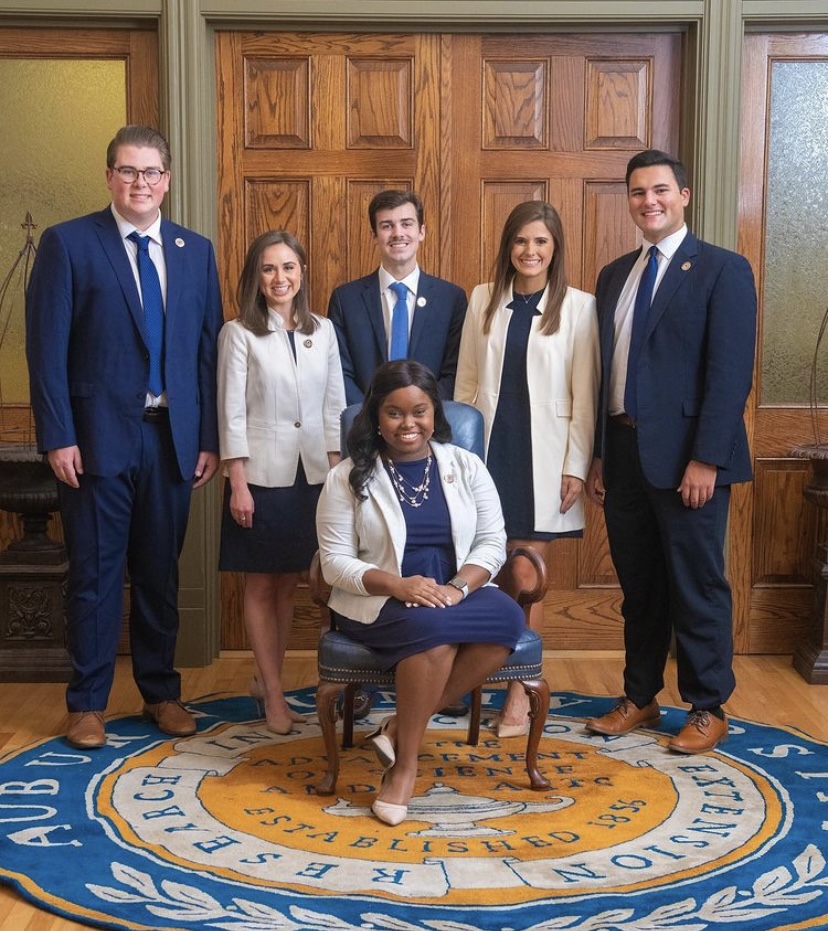
A: “I work with literally all of it, which can definitely be intimidating and completely overwhelming. My job as the SGA President is to represent every student that is on this campus, which is over 30,000 people. So it’s a really big job, which is why you need a really big team. My job in particular is to be that main person who acts as the bridge between the student body and the administration. That involved meeting with several administrators across out campus sometimes on a weekly basis, sometimes on a monthly basis. It was definitely a lot more frequent when we first went into lockdown. Of course, you create executive goals alongside your team and create meetings and pathways for those executive goals to flourish throughout your term. Technically, I oversee all three branches, both senate and executive branches which contain SGA Cabinet and Judicial. It’s certainly a big job and I serve on various boards and committees amongst the university. I was an ex-officio member of the board of trustees, so I mean it’s just constant business.”
Q: It is a common idea that young adults in leadership positions such as SGA President have it all together. Do you believe this applies to yourself, or is this idea just a misconception?
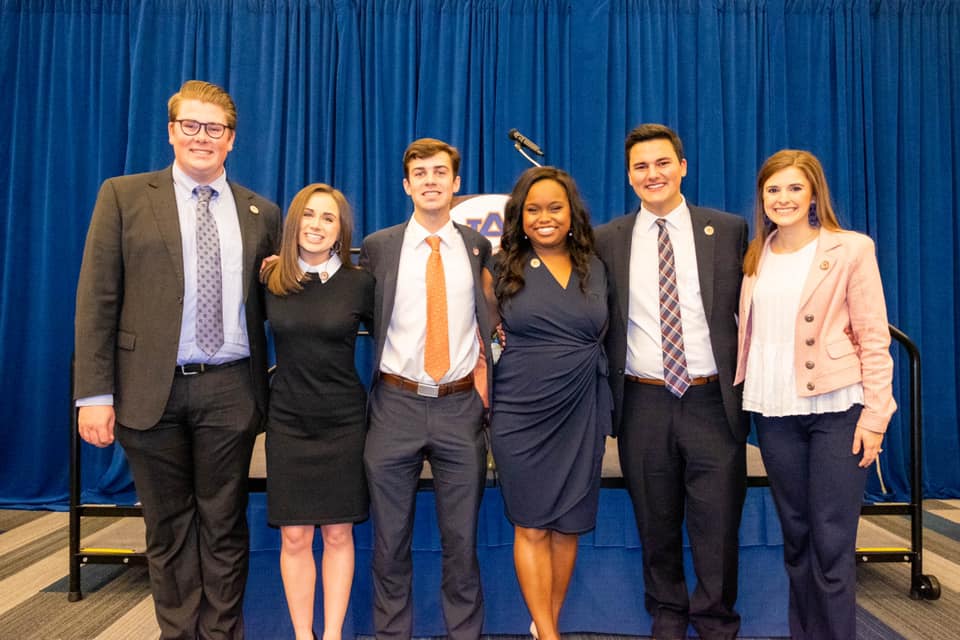
A: “I certainly did not have it all together. I feel like my life amounts to just one big juggling act and somehow I’ve made it from point A to point B. A few bumps and bruises but we’ve made it. It was constant chaos; you know it looks so pretty from the outside looking in. I’ve looked at other SGA Presidents in the past and how it looked like they always had their lives together and looked perfect going to class and going to these meetings. They just always had the right thing to say and wear and do and I’m like, ‘WOW, they just have it all together’.
But then as I talk to them and get to know them through leadership, I’m like, ‘WOW, so we’re all really just out here juggling everything and just making it work’. That’s kind of what this past year has been: one big juggling act. I can guarantee you that no one person has it all together and has it all figured out, especially myself. It’s just a matter of having incredible people around you to support you and also being very responsible and managing your time. Even amongst all of the chaos in the past year I was able to make all A’s for the first time in my Auburn career which was so exciting. So it’s just a matter of having a great support system but also holding yourself accountable and having a schedule and a plan.”
Q: What effect did COVID have on your position, were you able to work around the limitations of the pandemic?

A: “I mean it totally changed my job. They made the installment March 1st, and I believe they made the announcement that we were shutting down as a university about a week and a half later. I had been transitioned to expect a job in person. So the whole month I transitioned was definitely helpful when preparing me for the ins and outs of the job, it was just different in every single way. We had to figure out what this Zoom thing was, I didn’t have to get dressed up all the way, I could just do a face up which was a fun little advantage. But it changed my job entirely.
Normally there’s the War Eagle pep-rallies to look forward to and SGA retreats where you get to meet your teams in person and give someone a hug and high five or whatever demonstrating your appreciation for your team looks like. All of a sudden all of that was gone. I couldn’t see the student body face to face and get to know the people I’m serving and I couldn’t go to events or interact with administrators. I couldn’t even see my team in person, there’s members of my cabinet that I still have not met in person and we had a whole term of serving together. It changed the job entirely and we had to be adaptable and understand that our role was going to be different from any of our successors.”
Q: Even though you are a student, do you feel as though Auburn gave you the platform to make real change within your position?

A: “Absolutely. I really get to brag to my SEC peers that here at Auburn they really do value the student voice. That’s something that unfortunately a lot of my peers have not experienced at their own institutions. They have to fight to get their foot in the door just to talk to an administrator. Here at Auburn, I just send a quick email and they’re like, ‘Hey can I treat you to lunch?’ I’ve even had administrators coming to me for the student perspective. It just looks very different for a lot of institutions across the country and for that, we certainly have a lot to be grateful for.
We brought a whole new light to the issue of diversity and inclusion because the president was a person of color. It’s just so different when it’s coming from someone who lived these experiences. I felt really honored to advocate for things like diversity and inclusion for students of color and underrepresented students on our campus throughout this past year. And like I said, it wasn’t hard to do because there were administrators willing and ready to listen to the student voice and understand that you were elected by the student body for a reason. They were ready to figure out over the course of that year what that reason was. So we’re definitely really fortunate here at Auburn and I was lucky enough to bring a lot of those conversations to life.”
Q: If you could be remembered for one accomplishment during your time as President at Auburn University, what would that be?
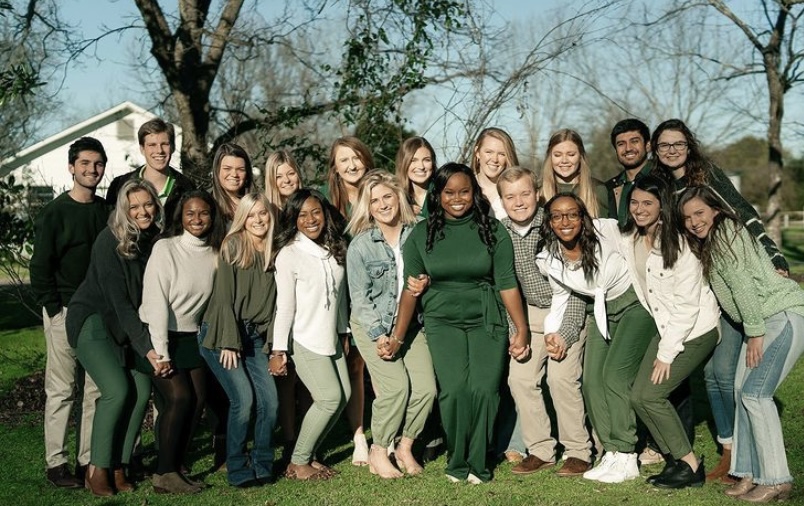
A: “I would really want my legacy to be an administration that truly valued each individual perspective that made up the student body. I understand that me coming into this job as the first black female looked very different than what occurred in the past because nobody that looks like me has done this job before. So, I really put a lot of emphasis on making sure that I wasn’t just present for people who looked like me, but I was present for all different types of student groups throughout my term.
I got the opportunity to work with Spectrum over the past year, and also ISO, the Eagles program, ISC, MPHC, Panhellenic, Honors College, I mean you name it. I recently got to work a lot with the Grad Student Council on some issues and different things that they’re dealing with in their college. It’s just been such an honor and a privilege to be able to have worked with so many student groups over this past year. Obviously, you’re not going to reach all 30,000 people individually, as much as you’d like to, over the course of a year. But the hope is to make a small change in students life to where they were seen and they were valued and they were heard.”
Q: Do you have aspirations to run for any political positions after graduation? If not, what are your plans?
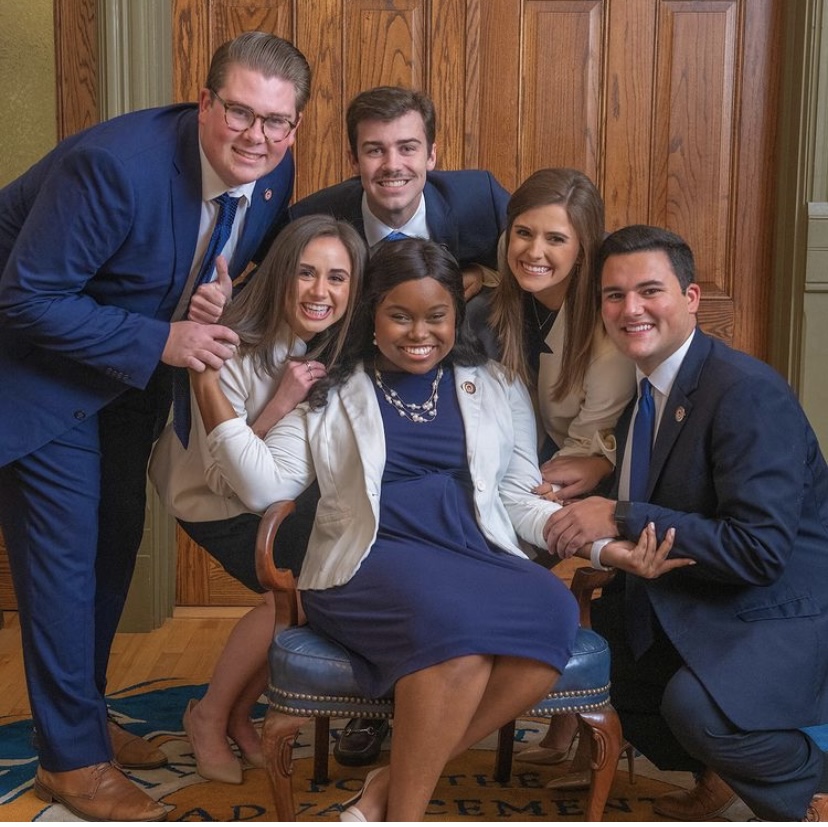
A: “I realized very quickly that politics is not for me and I am more than comfortable with that. A lot of people that do this job end up running for office and I have so much respect for people in politics who handle that lifestyle because it can certainly come with a lot of criticism too. But I definitely have a lot more of a niche of how I want to impact the world. A career in politics, I don’t necessarily know would allow me to fulfill that to the fullest extent. I’m actually about to move to California in September to begin a graduate program with the Culinary Institute of America.
I’ve always loved to cook, it’s something I’ve loved to do for as long as I can remember. My Christmas gifts were never Play-stations or Barbie Dolls, I got a cast iron skillet and a stand mixer. So I was like, why not? I’m never going to have another opportunity to do this. I eventually would love to start my own restaurant that has an outreach extension on educating people on different cultures. I’m a global studies major with a hunger studies minor, so I’m really passionate about both global cultures and food insecurity. I hope to create a restaurant that doesn’t just highlight the culinary aspect of different cultures but also creates more of an experience when you come to the restaurant.
I grew up in a very small town, but my parents always encouraged me that there was so much more beyond Clanton County. We spent the summers studying different countries. There were four of us at the time, there’s five of us now, we’d all pick three countries at the beginning of the summer and draw a new country once a week. We’d then study about that country and make a meal and that’s how I fell in love with the world that I couldn’t see. That’s what inspired me to travel and engage in other cultures. I had the opportunity to study abroad in India, I’ve been forever changed and impacted by the people I met. I want to bring that experience to other people whether it’s through food, outreach or programs in schools.
Q: Did you ever come across any failures that shaped how you performed as a leader later in your position?
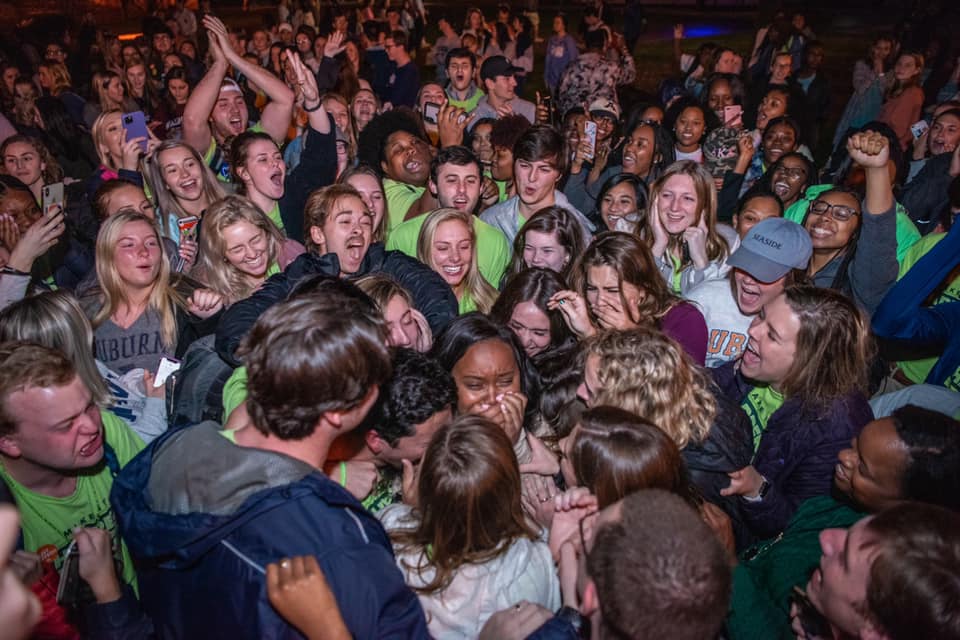
A: “My earliest example happened in high school. I had the great privilege of being a co-editor for my high school yearbook team. I didn’t have a background in design, but I was open to learning. The advisor saw my leadership potential and put me in the job. Up until this point, I had a lot of great teachers, but nobody really told me no yet. Nobody said, ‘Ada I think you could do this better’; I don’t mean that to sound pretentious, that’s just the fact of the matter. So I’m in yearbook and I would design a page and my advisor, who would laugh if she reads this interview, would review a page and be like, ‘I didn’t like it’ and I would sit there confused like, ‘What do you mean you didn’t like it?’
That was just such an important lesson for me to learn, me recognizing for the first time that Ada, sometimes people have better ideas than you and you need to be open to listening to that. I learned so much from that particular advisor about being open to other people’s ideas but also learning to hold myself more accountable in the fact that I don’t always have the best idea in mind. I needed that lesson before I came to college and got involved in different things.”
Q: What are you most proud of during your time as Auburn SGA President?
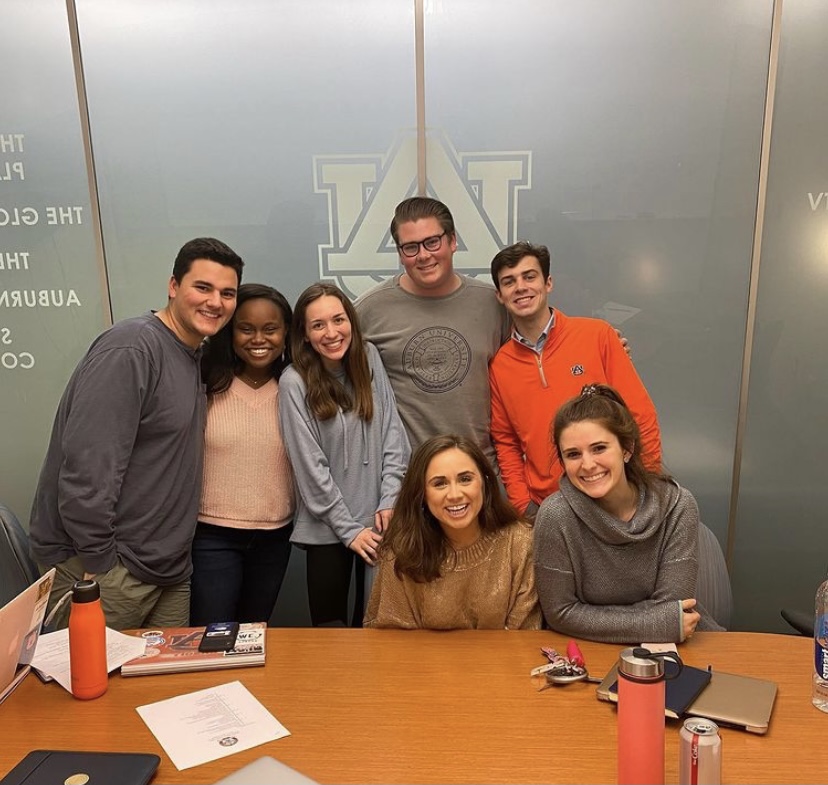
A: “I mean overall, I’m so proud of this team for navigating through this crazy time. You know, we were sad throughout the year that we didn’t have a normal year. But we never let that impact our work or deter our drive from wanting to serve the student body. That’s certainly something to be proud of because I know a lot of my SEC peers struggled with keeping their teams motivated and wanted to continue serving in the middle of the pandemic. I’m just really proud that we never had that issue with our team. I never had to give a speech about needing to stay motivated for the student body because they were doing it already and I think that’s a testament to the culture that we created at Auburn for servant leadership. I know that it is very broad but I’m just so proud of this team for excelling especially amidst the challenges we faced over this past year.”
Q: What is a moment that you will always remember during this role?
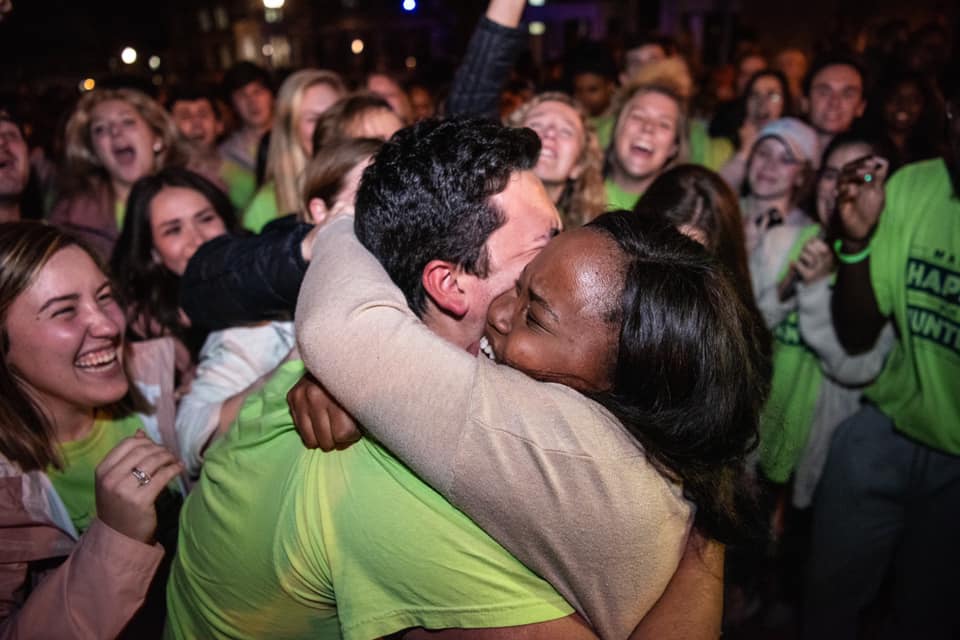
A: “The moment that they called my name. That moment felt just so surreal. One, I’m like, ‘Are they sure?’ and second, the overwhelming sense of gratitude that I felt for the experiences that I had up until that moment. All the people that carried me to that moment and the student body and the fact that they put their belief in me. Also, the contributions of all the black faculty, staff, students and administrators before me who inched open the door just a little each time so that I could walk through it.
I mean it felt just overwhelming because one, you’re the SGA President, but two you’re the first black female and that carries so much weight. I remember I had a dream about it in September of the year before because we prepped for the campaign and it weighed heavily on my mind. In the dream I had people all over me and me falling. And that actual night I fell down out of excitement. That is a moment I will cherish forever; I will never forget that night.”
Q: Did you feel any pressure being the first black female president?
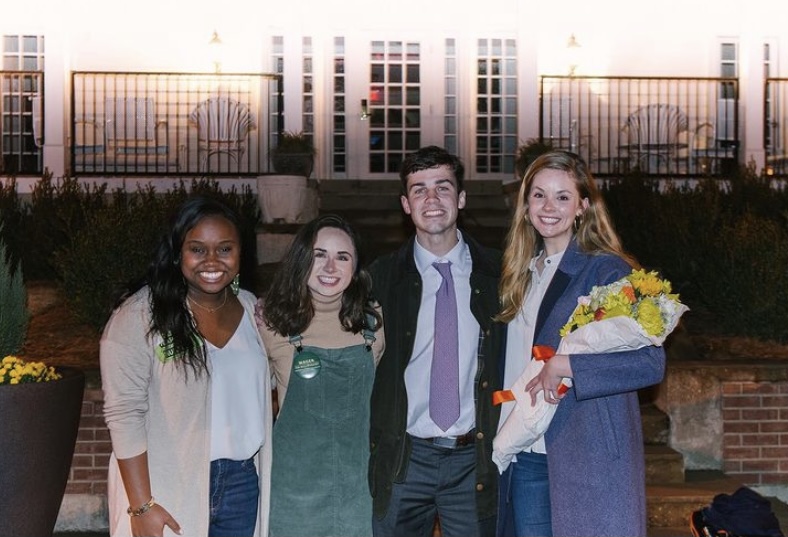
A: “Oh gosh yeah. It certainly felt intimidating and came with a lot of pressure throughout the year because I recognized that every individual action I took would impact every black female to come. A lot of my non-peers-of-color, they get to operate in the role. Especially if they’re the majority, I’m speaking to white males here, they are a lot less likely to get compared to their successors. But as a person of color, or any type of minority (I’ve even seen this with a group of women) there’s this sense of comparison each and every time.
I recognized from the very beginning that everything I did, everything I said, every step I took, every outfit I wore, was then going to translate to what it was going to look like for the next black female. That sets a lot of pressure, but also this is the university’s first time experiencing a black female in this job, and you want to set the standard high so there’s not any apprehension of the black females to come. We can do this job, and I wanted to prove we can do this job. After the results of this past year, I hope that I left that legacy.”
How to Run for Office
1. Know your why

“I’ve definitely observed this through the years of someone who wants to run for office since it’s a resume booster or will elevate them to some sort of position, and that’s not a reason to run. If I ran this year because I wanted to become the first black female and only have SGA on my resume, I would feel miserable. But I consistently felt motivated by the fact that I got to do what I wanted to do: to serve students. And if I had any other intentions other than that, the year would have been a bust, so know your why.”
2. Do your research
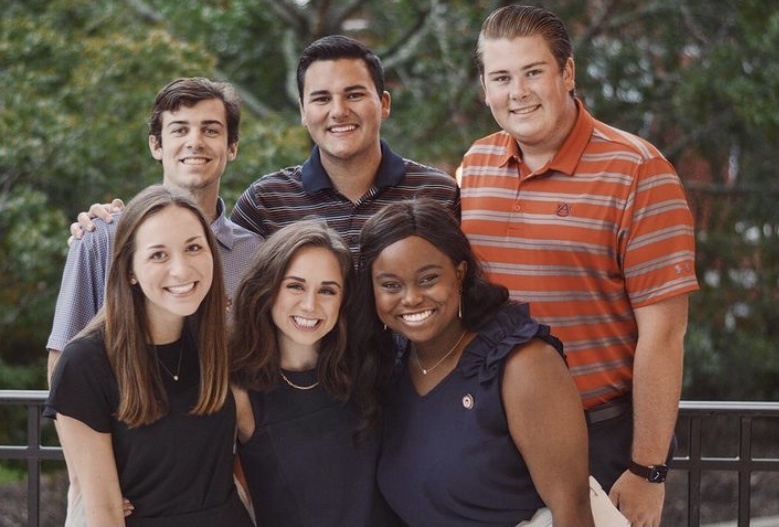
“I felt that I stepped into the role so prepared to do the job because I sat down with Mary Margaret and asked what the job is. I sat down with administrators across campus. Just taking the time to do that research, talking to advisors, looking up experiences from peer institutions and understanding what you’re stepping into and how you can prepare as best as possible for when you get the job. If I hadn’t done all of that and won but then had to do it all after, I would have wasted so much time. Just step into the job ready to go.”
3. Be Your Most Authentic Self
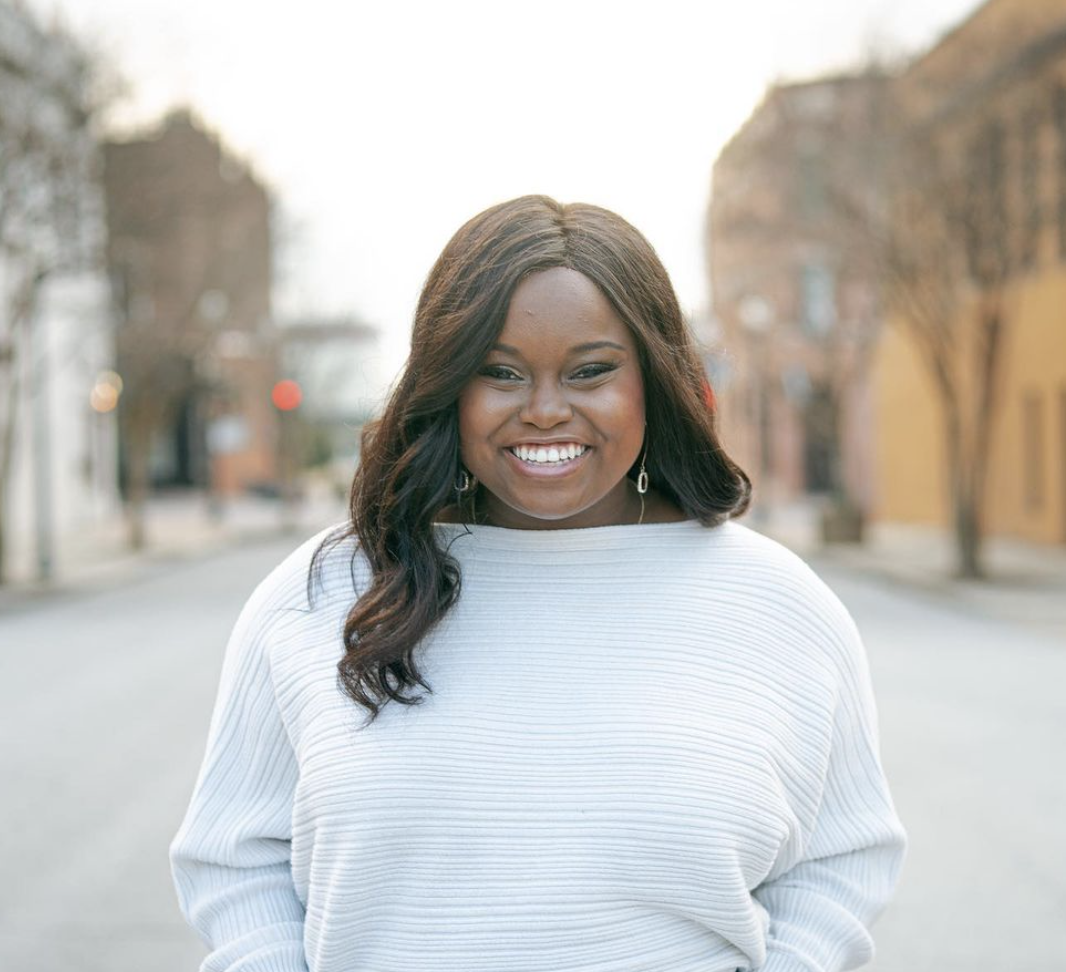
“I didn’t get elected because I put on some facade. Literally in one of my chapter visits, Landon, my best friend and former campaign manager, got mad at me because I hit “The Woah” at one of my chapter visits. It was just an impulse thing that I couldn’t control, but it paid off because it I connected with people and was real. It was just me doing something random that I would do in a random conversation, people got a kick out of it. That’s what your job is, you have to connect to the student body and you can’t connect if you’re not even being your real self.”
How to Connect with Ada Ruth
Instagram: adaruth_101
Twitter: adaruth_101
Email: [email protected]
LinkedIn: Ada Ruth Huntley



















